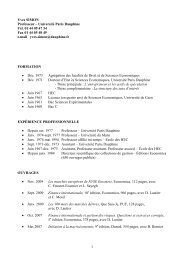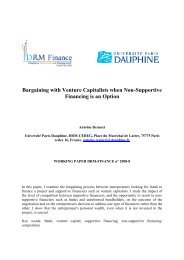Corporate governance and earnings management ... - CEREG
Corporate governance and earnings management ... - CEREG
Corporate governance and earnings management ... - CEREG
Create successful ePaper yourself
Turn your PDF publications into a flip-book with our unique Google optimized e-Paper software.
“balance sheet approach” <strong>and</strong> systematic taxation of all capital gains, including gains on sales<br />
of goodwill. There was no longer any reason to oppose the possibility of depreciating<br />
goodwill.<br />
From then on, <strong>and</strong> practically from 1928 to the modern day, the French tax administration’s<br />
position remained almost constantly as follows:<br />
- goodwill is an asset (but start-up costs are not);<br />
- goodwill cannot be systematically amortized;<br />
- goodwill can be reduced in exceptional circumstances.<br />
b) The influence of the tax administration on French doctrine<br />
We shall consider tax <strong>and</strong> commercial doctrine separately.<br />
Tax doctrine<br />
Most major specialists in taxation defended the st<strong>and</strong> taken by the tax administration. This<br />
was the case for Lecerclé (1922), Besson, Bocquet, Dur<strong>and</strong> <strong>and</strong> Bourrel (quoted in Brière,<br />
1934, p. 26-36). Lecerclé (1922), who appears to have been one of the leaders in this school<br />
of thought, reflects the thinking of the time: goodwill can only be amortized “in very<br />
exceptional cases” if there is a regular, constant decline in the value of the business (Brière,<br />
1934, p. 176).<br />
Commercial doctrine<br />
Supporters of the static doctrine naturally found themselves on the defensive against tax<br />
theorists. For supporters of the actuarial approach, on the other h<strong>and</strong>, such as Charpentier <strong>and</strong><br />
Hamelin (1933), convictions were strengthened.<br />
Some authors, including major names, remained faithful to the static approach. Batardon,<br />
for example (1931, p. 185-187), continued to group goodwill together with start-up costs <strong>and</strong><br />
called for rapid amortization, at least for limited liability companies. Prospert (1934) also<br />
39



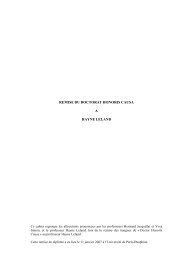
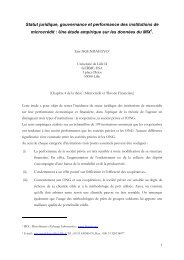
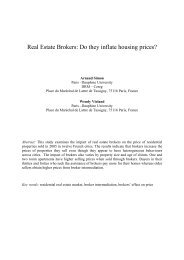
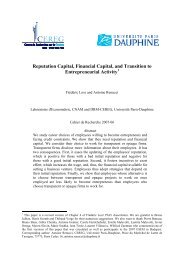

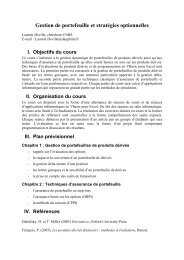

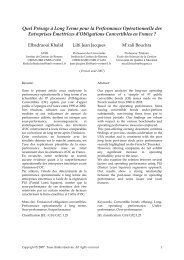

![& 6 ] ^ F ]^ - CEREG - Université Paris-Dauphine](https://img.yumpu.com/33326502/1/184x260/-6-f-cereg-universitac-paris-dauphine.jpg?quality=85)

